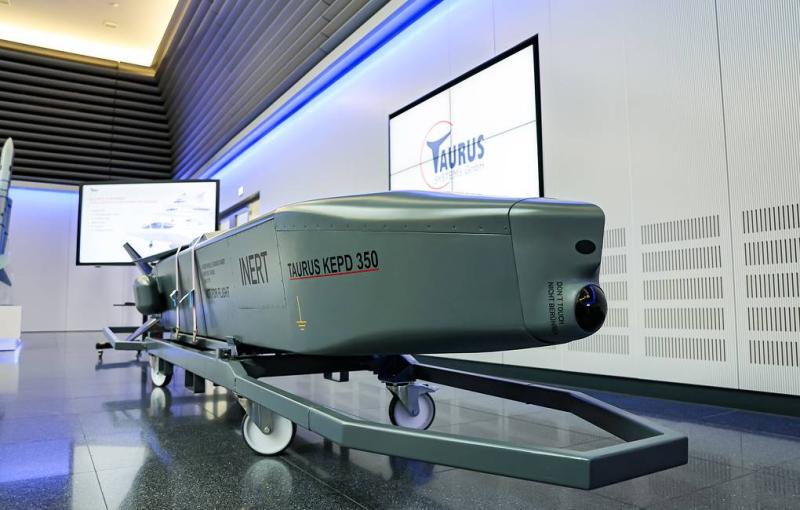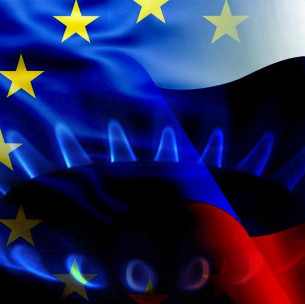
Opinion in Germany is split over the question of Taurus missile deliveries to Ukraine in the wake of the leak scandal; Paris is seeking to heed the Czech president’s call to acquire shells for Kiev from non-EU sources; and India’s commissioning of a new Indian Ocean naval base may cast a shadow over China-bound oil shipments. These stories topped Wednesday’s newspaper headlines across Russia, according to TASS News Agency.
Izvestia: Germany split over question of Taurus deliveries to Kiev in wake of leak scandal
The ongoing scandal over the leaked conversation among Bundeswehr (German Armed Forces) officers discussing the options for using Taurus missiles to attack the Crimean Bridge may deal a strong blow to the reputation of the center-left Social Democratic Party (SPD), now in power under German Chancellor Olaf Scholz, said experts interviewed by Izvestia. It may also complicate Germany’s already tense relations with Great Britain. Meanwhile, there is no unanimous opinion in Germany over whether Berlin should provide Kiev with Taurus missiles, with members of both the ruling coalition and the opposition being split on the issue.
A source in the center-right opposition Christian Democratic Union (CDU) told Izvestia that many in his party in general favor shifting hostilities onto Russian territory. "We hold the position that if Ukrainian forces use the Taurus [missiles] for attacks deep inside Russia, this may destabilize the social and political situation in the country and weaken Russia," the source argued. Meanwhile, the right-wing populist opposition Alternative for Germany (AfD) party is resolutely against delivering this weapon system to Kiev.
While a majority of Germans oppose sending Taurus missiles to Ukraine, other parties, including ruling coalition members the Free Democratic Party and the Greens, as well as, perhaps, Great Britain and France, are putting pressure on Scholz to release the weapons, Bundestag (German parliament) Defense Committee member Jan Nolte (AfD) told Izvestia. However, "the opinion of Olaf Scholz represents the majority of Germans, so I tend to believe that his ‘no’ [on Taurus deliveries] will remain in force," the German politician said.
The leak scandal will have a negative effect on the already rather low poll ratings of the ruling party, believes Maria Khorolskaya, researcher at the Russian Academy of Sciences’ Primakov Institute of World Economy and International Relations (IMEMO RAS). "We can see differences between Scholz and [German Defense Minister Boris] Pistorius," she said. While Scholz made his position [against delivering the Taurus] clear, Pistorius continued discussing potential deliveries of the Taurus. Although the leaked audio recording may deal a strong blow to the institutional prestige of the Bundeswehr and to Pistorius personally, the scandal will not serve as grounds for the hawkish defense minister’s dismissal, the political analyst said.
Vedomosti: Paris seeks to heed Czech president’s call to buy shells for Kiev outside of EU
On Tuesday, French President Emmanuel Macron arrived in Prague to discuss last month’s proposal by the Czech Republic to acquire 800,000 shells for Kiev from sources outside of the European Union (EU). The Czech initiative to become an "artillery hub" for Ukraine was first voiced by Czech President Petr Pavel at the Munich Security Conference on February 17. Back then, he said that Prague had found a way to buy 500,000 155mm shells and 300,000 122mm shells in non-EU jurisdictions.
The Czech Republic has been an active player in the global weapons market since the Cold War era, and it has sufficient know-how in arms exports and imports, Ilya Kramnik, researcher with the Center for Strategic Planning Studies at the Russian Academy of Sciences’ Institute of World Economy and International Relations (IMEMO RAS), points out. "In theory, they can find up to 1 mln shells. But not all external partners of the EU are actually ready to get rid of their arsenals and join the Ukraine conflict. Even South Korea refused to hand over a substantial portion of weapons at a time when the Ukrainian armed forces were in better shape," the expert emphasized.
In the view of Prokhor Tebin, head of the Department of International Military-Political and Military-Economic Problems at the Center for Comprehensive European and International Studies at the Higher School of Economics (HSE University), Europeans will buy ammunition for the Ukrainian army in third countries on a temporary basis. "Some of them expect the international crisis to be over soon, while others are planning to increase defense production soon or replenish their arsenals through purchases from the United States," he explained.
The French president is seeking to show that Paris is seizing the initiative within Europe for the provision of military support to Ukraine, Le Figaro writes. However, Pavel Timofeyev, head of the Regional Problems and Conflicts Department at IMEMO RAS, notes that France is not a leader in this area even by European standards.
Izvestia: New Indian naval base casts shadow over China-bound oil supplies
On March 6, India will commission a new naval base, Jetayu, in the Lankshadweep archipelago in the Indian Ocean. While the Indian authorities argue that the rationale for the idea is to augment security infrastructure in the strategic island group, Hong Kong media outlets say that it may affect oil shipments to China via the Indian Ocean and the strategic Strait of Malacca.
In addition, New Delhi has plans to build a dual-purpose airfield, for civilian aircraft and warplanes, on Minicoy Island. While the Economic Times reported that the Indian Navy is seeking to use "the benefits of India’s geographical position to strengthen its naval positions," this in fact means that India, which is competing with China for dominance in Asia, will now be able to affect oil shipments via the Strait of Malacca, the South China Morning Post argues.
In an interview with Izvestia, Alexey Kupriyanov, chairman of the South Asia group at the Russian Academy of Sciences' Primakov Institute of World Economy and International Relations (IMEMO RAS), doubted that India’s actions may hamper oil flows from the Middle East to China. "For the presence of a [naval] base will not be an obstacle to the passage of commercial vessels along the strait. They [India] already have a military presence in Lankshadweep; moreover, they have airfields and radars there. So, this is just the latest Indian concept for developing territories," the expert in Indian studies explained.
Alexey Maslov, director of Moscow State University’s Institute of Asian and African Studies, told Izvestia that China is a major rival for New Delhi and, as such, occupies a central place in India’s political doctrine. However, Saudi Arabia, Russia and some African countries are also key oil suppliers to China. "India cannot block these supplies, and I don’t think it will do so. New Delhi would hate to aggravate its relations with Beijing by, say, blocking any cargos. India wants to show that it is an independent military and political player and therefore lure other partners, the United States and Russia. So, this is a war of political narratives rather than a military confrontation," the expert concluded.
Nezavisimaya Gazeta: West upgrades military aid for Kiev even as Ukrainian forces retreat
While the Russian Army still holds the initiative in the special military operation zone, and Russian forces have been pushing Ukrainian troops westwards following the liberation of Avdeyevka, as Russian Defense Minister Sergey Shoigu said on March 5, the Ukrainians continue to conduct strikes and subversive attacks outside of the combat zone in Russia as they retreat. The United States and other NATO allies are supporting them by providing targeting coordinates.
Officials reported the downing of drones in the borderline Russian regions of Belgorod and Kursk on March 5. Kursk Region Governor Roman Starovoit said the Glushkovo train station and the village of Kulbaki were left without electricity following Ukrainian attacks. And motor and rail traffic on the Crimean Bridge was halted for more than eight hours in the early morning on Tuesday, although the reasons for the suspension were not disclosed.
These reports show that the Ukrainians have been trying to do harm to Russia, primarily by attacking transportation routes as well as infrastructure, defense, power and other strategic facilities. And Ukraine is getting more high-precision weapons, including missiles, drones and shells, as it practices high-tech means of hitting targets using Western-supplied IT technology. While Russian air defense forces repel the vast majority of such attacks, using precision-guided weapons, sometimes some do get through and Russia sustains losses.
According to media reports, Singaporean Defense Minister Ng Eng Hen told a hearing of the parliamentary procurements committee that US fifth-generation F-35 fighters are allegedly involved in missions to detect the location of Russian air defense systems in the special military operation zone.
"Therefore, the F-35 jets that were seen in the skies above neutral waters in the Black Sea could have detected the operation of Russian air defense forces in Crimea, as well as in the Kherson and the Zaporozhye regions," Colonel (Ret.) Vladimir Popov, a military expert, told Nezavisimaya Gazeta. He pointed to the fact that, apart from F-35s, strategic RQ-4 Global Hawk drones and US and NATO reconnaissance aircraft, including Lockheed U-2 or Boeing RC-135W Rivet Joint, can be equipped with radars for detecting targets. "These aircraft constantly monitor Russian areas not only in the Black Sea, but also in the Baltics and even in the Arctic and in the Far East, meaning that they can provide target designation and coordinates for Ukrainian forces," Popov warned.
Kommersant: Germany seeking oil for Druzhba pipeline
Kazakhstan is in talks with Germany to increase oil supplies via the Druzhba pipeline in Russia to oil refineries in Germany to 2 mln metric tons in 2024, Kazakh Energy Minister Almasadam Satqaliev said. This represents a 1.7-fold increase from the amount envisaged in the existing contract. However, the plans come down to the cost of supplies, as Astana will have to redirect additional volumes from other export routes, sources told Kommersant.
At present, Kazakhstan ships its oil through the facilities of the Caspian Pipeline Consortium in Novorossiysk (56.6 mln metric tons in 2023), through the port of Ust-Luga (around 10 mln tons) and through the Druzhba pipeline. Sources told Kommersant that Kazakhstan cannot simply increase exports to Germany, citing restrictions on its own production.
Igor Yushkov, an expert at the Financial University under the Government of the Russian Federation, agrees that the Central Asian country could increase pipeline oil shipments to Germany, given its voluntary commitments to OPEC+, only by redirecting volumes from Ust-Luga. However, he doubts that things could out turn that way as Astana has an established sales channel in the Baltics as well as contracts with traders, which the country is in no hurry to break. As regards Germany, the expert notes, the country itself could benefit more from importing pipeline crude, as it would not need to pay for transshipment in Gdansk or transportation to oil refineries, nor it would need to compound the oil pumped through the Druzhba, since it is already of adequate quality. However, Yushkov argues, only a price increase could convince Kazakhstan to increase supplies to Germany via the pipeline.
TASS is not responsible for the material quoted in these press reviews









